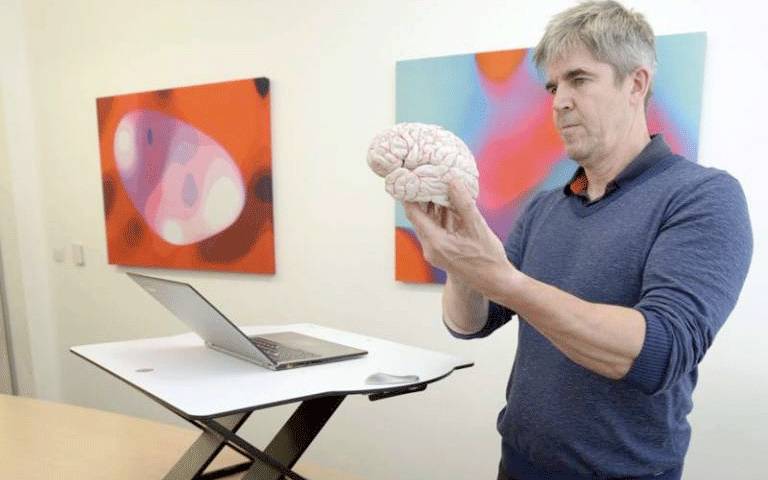A UCL Brain Sciences study could transform how we work
While the physical merits of sit-stand desks are well-recorded, UCL research has uncovered their psychological benefits.

7 January 2021
The study came about when Posturite, a specialist in ergonomic furniture and equipment, asked UCL to test their Opløft desk. The desk enables users to move between sitting and standing positions throughout the day. Posturite hypothesised that this action could increase cognitive function and improve how people work.
UCL Brain Sciences is home to internationally influential researchers studying the workings of the human brain. To test their idea, Posturite contacted UCL Consultants, part of Innovation & Enterprise, who connected them with Vincent Walsh (Professor of Human Brain Research).
In the first study of its kind, Professor Walsh and his team created behavioural tests to evaluate whether sit-stand desks could change the productivity and emotional wellbeing of sedentary workers.
The results were compelling. Professor Walsh said “our research revealed that workers using Opløft were twice as competent in their decision-making skills, and their language-based problem skills improved by 64%. They also completed tasks measuring concentration and vigilance 10% faster and made 45% fewer mistakes. Their creativity also improved by 28%.”
The implications of this trial are considerable. With only 1% of UK workers currently using sit-stand desks, it could be time for us all to ditch the static desk.
 Close
Close

